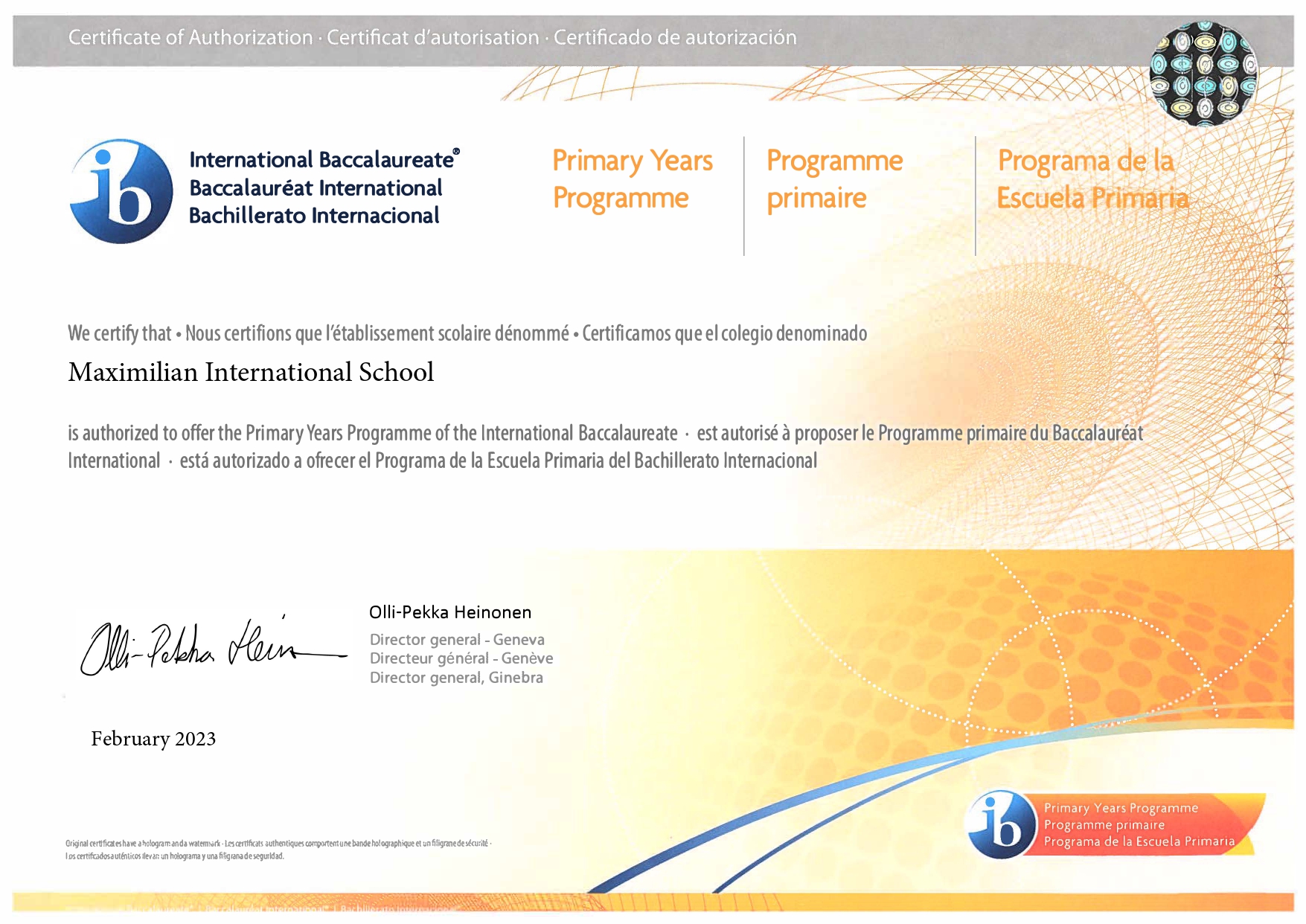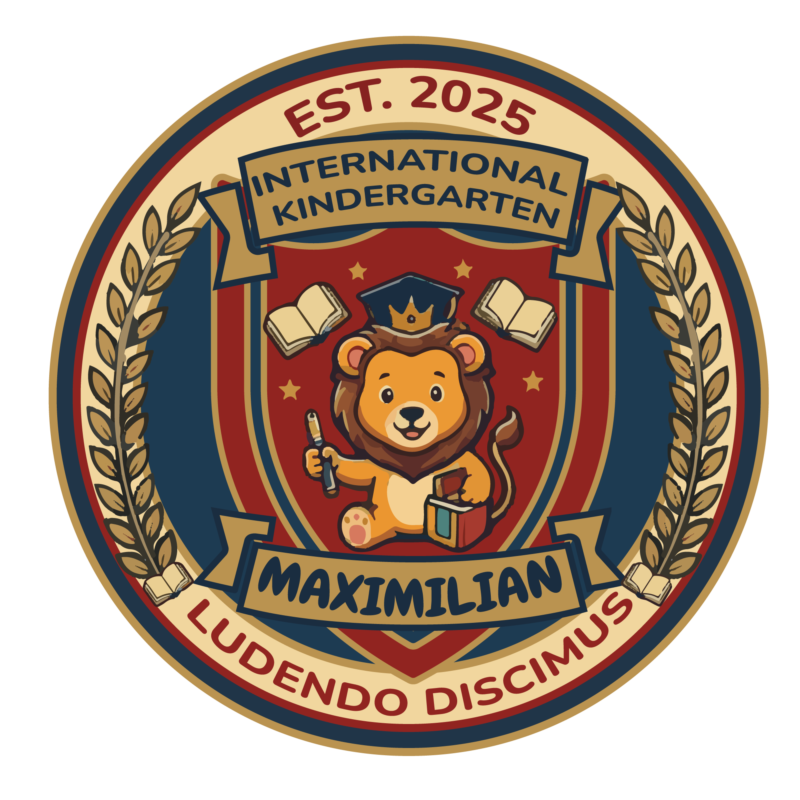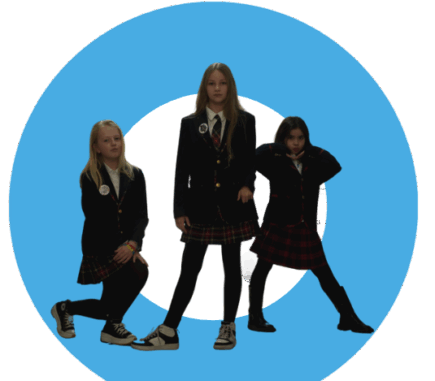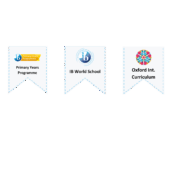Primary program
Age of students
The Primary Years Programme is created for the children from 5 to 11 years old | School Years 1-5
Mission Statement from the IB
The International Baccalaureate aims to develop inquiring, knowledgeable and caring young people who help to create a better and more peaceful world through intercultural understanding and respect. To this end the organization works with schools, governments and international organizations to develop challenging programmes of international education and rigorous assessment. These programmes encourage students across the world to become active, compassionate and lifelong learners who understand that other people, with their differences, can also be right.
The mission of International School Maximilian is to develop lifelong learners who seek to improve the world through knowledge, inquiry, and reflection. Our School is committed to promoting a respectful community of independent and passionate lifelong learners who are aware of their roles and responsibilities in an ever-changing world. To this end, we offer a variety of learning experiences within a supportive and challenging environment.
Inquirers
They develop their natural curiosity. They acquire the skills necessary to conduct inquiry and research and show independence in learning.
Knowledgeable
They explore concepts, ideas and issues that have local and global significance.
Thinkers
They exercise initiative in applying thinking skills critically and creatively to recognize and approach complex problems, and make reasoned, ethical decisions.
Communicators
They understand and express ideas and information confidently and creatively in more than one language and in a variety of modes of communication.
Principled
They act with integrity and honesty, with a strong sense of fairness, justice and respect for the dignity of the individual, groups and communities.
Open-minded
They understand and appreciate their own cultures and personal histories, and are open to the perspectives, values and traditions of other individuals and communities.
Caring
They show empathy, compassion and respect towards the needs and feelings of others.
Risk-takers
They approach unfamiliar situations and uncertainty with courage and forethought, and have the independence of spirit to explore new roles, ideas and strategies.
Balanced
They understand the importance of intellectual, physical and emotional balance to achieve personal well-being for themselves and others.
At International School Maximilian, we are dedicated to providing our young learners with a well-rounded education that goes beyond traditional subject boundaries. Our Primary Years Program (PYP) Program of Inquiry is designed around six transdisciplinary themes that form the core of our curriculum. These themes serve as the focal points for exploration and learning, allowing our students to make meaningful connections across different subjects. The six transdisciplinary themes include:
Who We Are: This theme encourages students to explore the nature of themselves and others, fostering an understanding of identity, beliefs, and values.
Where We Are in Place and Time: Students delve into history and geography, investigating the interconnectedness of individuals and societies across time and space.
How We Express Ourselves: Creativity and expression are at the heart of this theme, promoting exploration of different forms of communication and artistic expression.
How the World Works: Science and the natural world take center stage as students explore the interconnectedness of humans and the environment.
How We Organize Ourselves: In this theme, students investigate societal structures, governance, and systems, gaining insights into the complexities of human organization.
Sharing the Planet: This theme focuses on sustainability, encouraging students to understand the responsibility we all share in caring for our planet and its resources.
Through these transdisciplinary themes, our students engage in inquiry-based learning experiences that foster critical thinking, creativity, and a global perspective. We believe that by exploring these themes, our students develop a deeper understanding of the world and their place in it, preparing them to become active, responsible, and informed global citizens.
At International School Maximilian, we are committed to providing a safe, inclusive, and nurturing learning environment for our students. Our school policies are designed to ensure that all members of our community understand and adhere to the principles and guidelines that govern our school. These policies are shared with all parents in our school community to promote transparency and collaboration. Below, you will find an overview of our PYP school policies:
Admissions Policy: Our admissions policy outlines the criteria and procedures for student enrollment, ensuring a fair and transparent process.
Attendance and Punctuality Policy: We emphasize the importance of regular attendance and punctuality to maximize students’ learning experiences.
Anti-Bullying and Harassment Policy: We have a zero-tolerance approach to bullying and harassment, with clear guidelines on prevention and intervention.
Child Protection Policy: The safety and well-being of our students are paramount. This policy outlines our commitment to safeguarding children and the procedures in place to address concerns.
Curriculum Policy: Our curriculum policy provides an overview of our educational approach, including our adherence to the IB PYP framework and the Program of Inquiry.
Assessment Policy: We believe in fair and authentic assessment practices that support student growth. This policy outlines our assessment methods and principles.
Homework Policy: Homework is assigned thoughtfully to reinforce learning. Our policy sets guidelines for homework expectations.
Language Policy: We are a multilingual school, and our language policy details our approach to language acquisition and maintenance.
Inclusion and Special Educational Needs (SEN) Policy: We are committed to inclusive education. This policy explains our support for students with diverse learning needs.
Health and Safety Policy: The well-being of our students and staff is paramount. This policy addresses health and safety protocols within our school.
Uniform Policy: We maintain a dress code to promote a sense of community and professionalism among our students.
Discipline and Behavior Policy: This policy outlines our approach to promoting positive behavior and addressing disciplinary issues.
Privacy Policy: We are dedicated to protecting the privacy of our students and their families. This policy explains how we handle personal information.
Communication Policy: Open and effective communication is essential. Our policy outlines how we keep parents informed about school matters.
Community Engagement Policy: We encourage parent involvement and community engagement. This policy promotes collaboration and participation.
Please note that these policies are regularly reviewed and updated to reflect best practices and evolving needs. We value the partnership between our school and parents and are committed to maintaining a safe and enriching educational environment for all our students. If you have any questions or concerns regarding these policies, please feel free to reach out to us for further clarification or assistance.
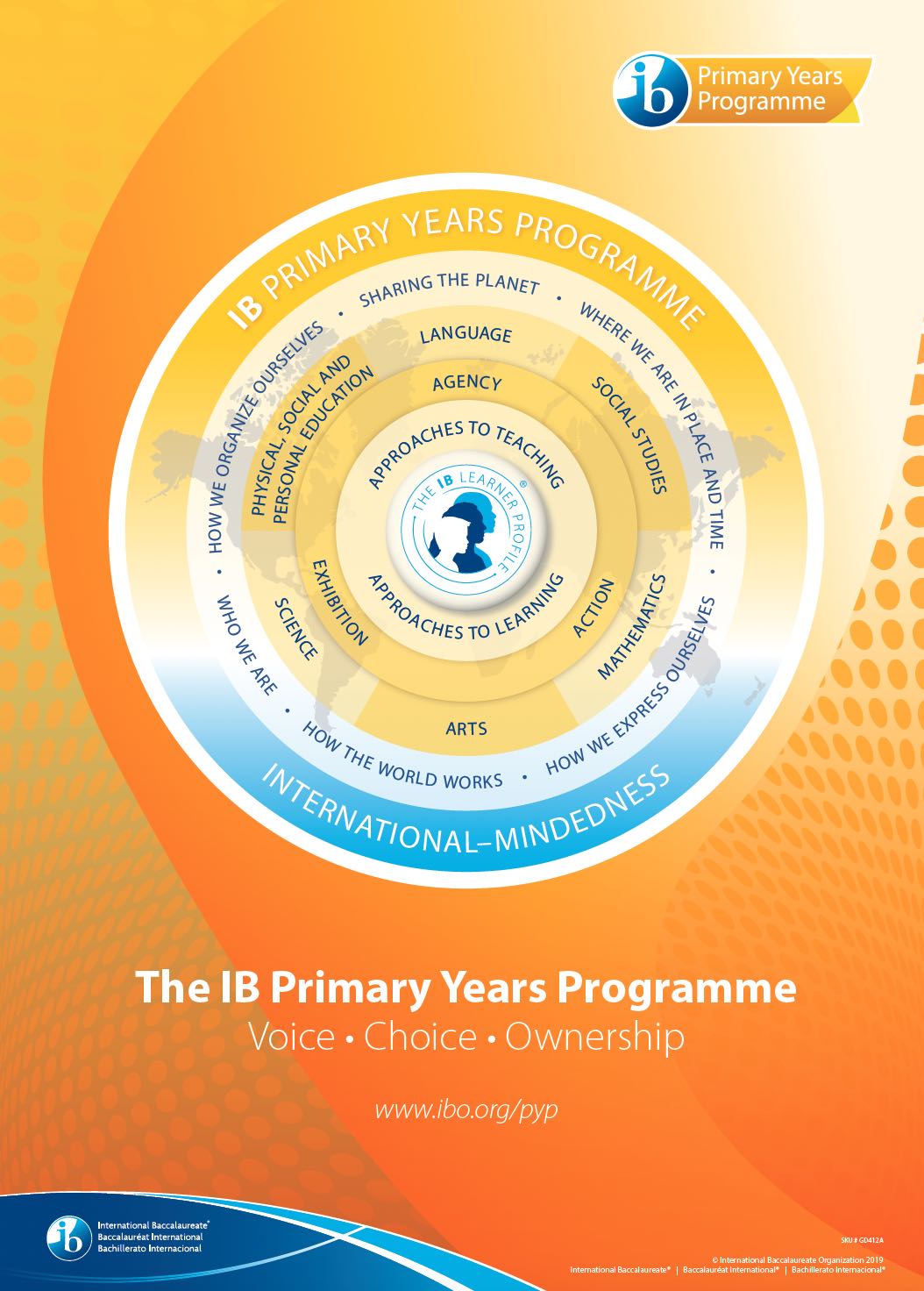
About IB Programmes
The IB programmes are designed to provide students with a well-rounded, holistic education that prepares them for success in an increasingly interconnected world. It focuses on developing critical thinking, intercultural understanding, and a sense of international-mindedness in students.
Our students will have the opportunity to take challenging courses, engage in independent research, and participate in community service projects that will help them develop into well-rounded, global citizens. The IB programmes encourages students to take ownership of their learning and encourages them to think critically and independently, which will help them become confident and responsible young adults.
We also understand that choosing a school for your child is an important decision, and we want to assure you that we will be providing support and resources to help your child make the transition. Our school is a community of learners, and we encourage parents to be active participants in their child's education.
If you're interested in learning more about the IB programme and how it will be implemented at our school, please contact us to schedule a tour or to speak with one of our administrators.
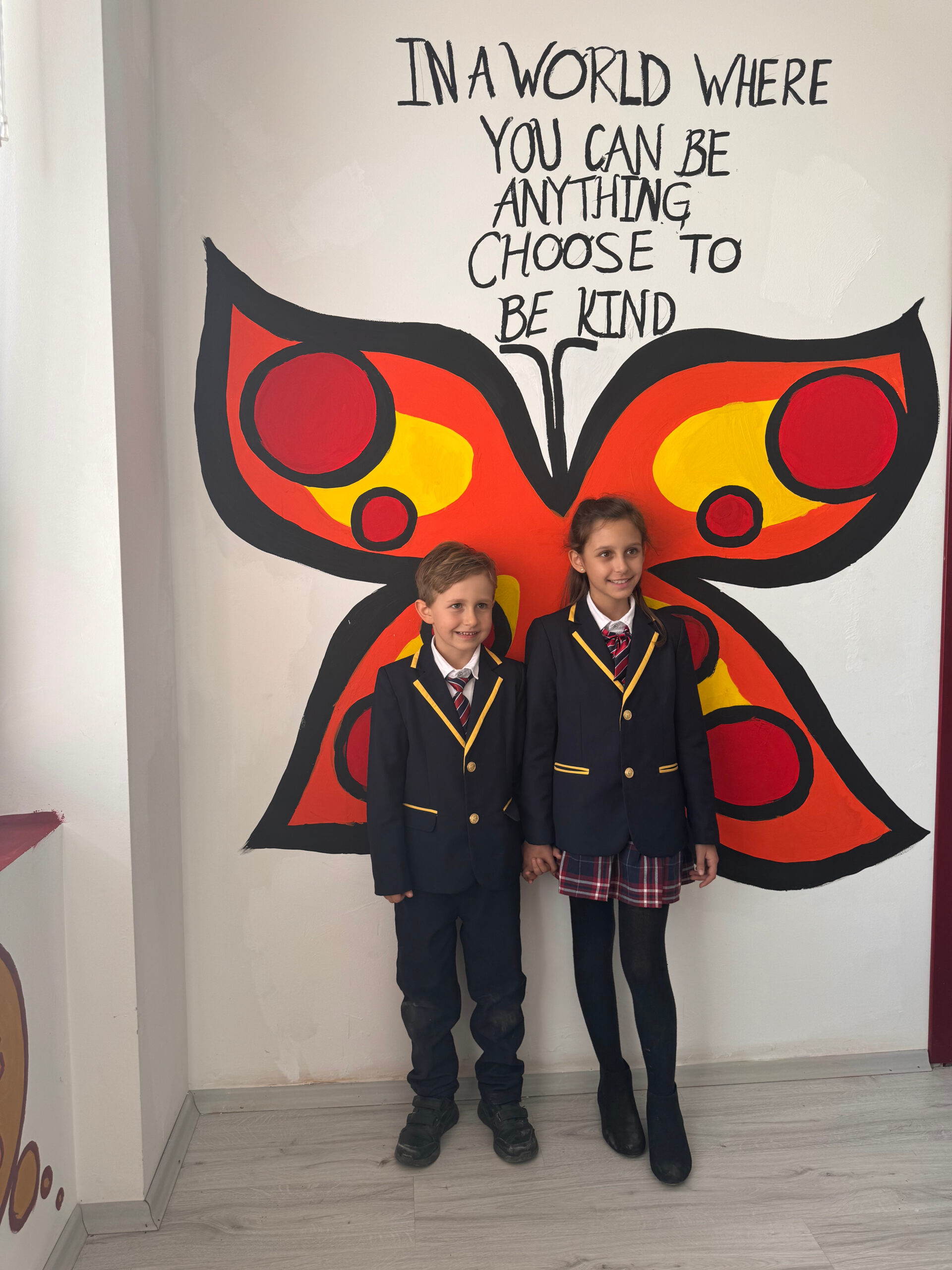
What is the Primary Years Programme?
The International Baccalaureate (IB) Primary Years Programme (PYP) is a curriculum framework designed for students aged 3 to 12. It is an inquiry-based program that focuses on developing students' critical thinking, intercultural understanding, and a sense of international-mindedness.
The PYP is built on a framework of six transdisciplinary themes that provide a context for learning. These themes are: Who We Are, Where We Are in Place and Time, How We Express Ourselves, How the World Works, How We Organize Ourselves and Sharing the Planet. These themes are designed to be relevant to the lives of the students and to provide a connection between subjects.
The PYP curriculum is based on the belief that students learn best when they are actively engaged in the learning process. The program is designed to be flexible and adaptable, allowing teachers to tailor their instruction to the needs of their students. The PYP uses a variety of teaching methods, including inquiry-based learning, hands-on activities, and real-world problem-solving.
The PYP also places a strong emphasis on the development of the whole child. The program includes social, emotional, physical, and language development, as well as academic learning. This holistic approach helps students to develop important life skills such as communication, collaboration, and problem-solving.
The PYP culminates in the production of the PYP exhibition, which is a student-led, transdisciplinary project that allows students to demonstrate their understanding of the six transdisciplinary themes and the essential elements of the PYP.
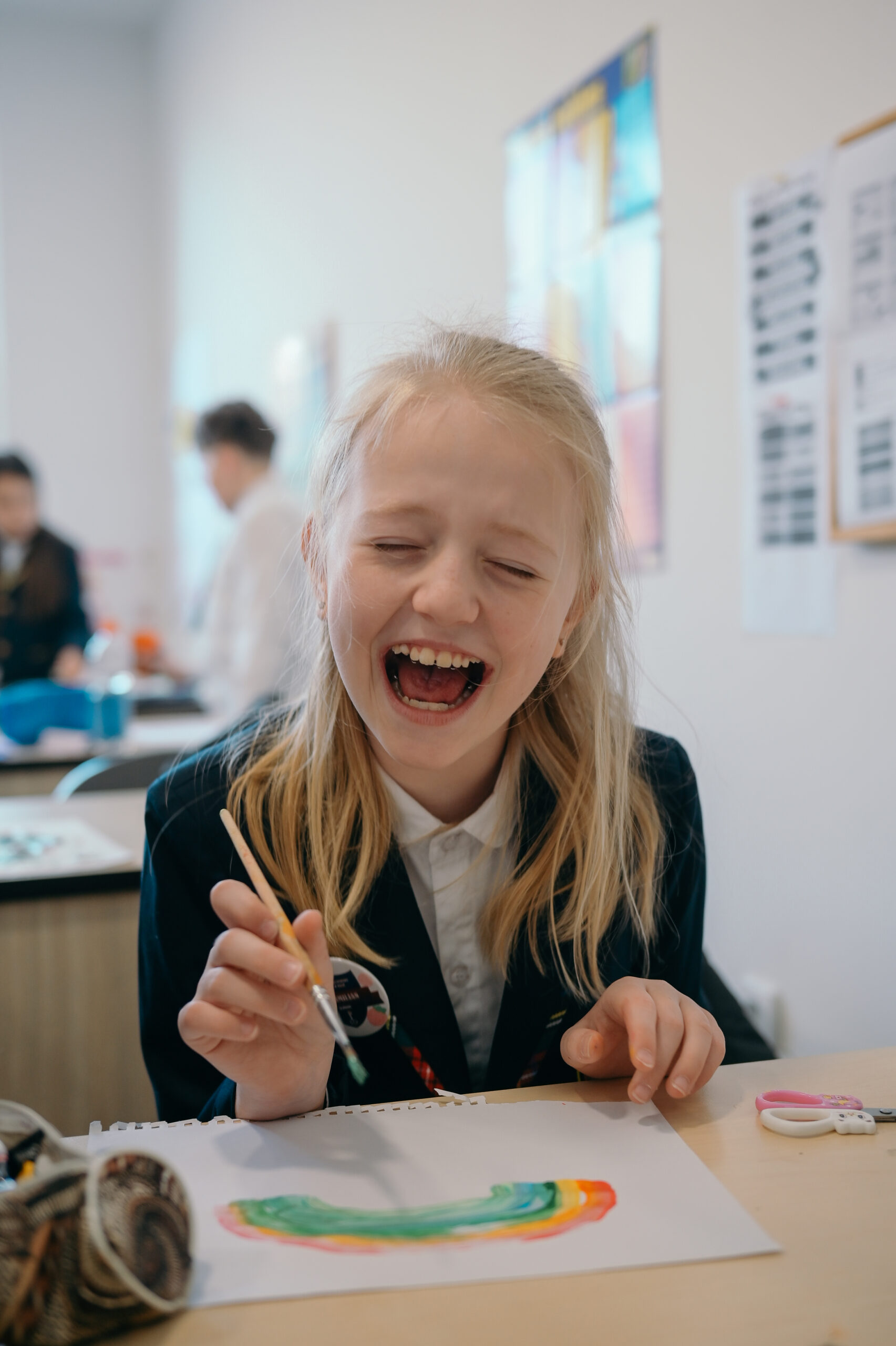
Grades in the Primary Years Programme (PYP):
- Grade 1 - age of the students: 5,5 to 6 years
- Grade 2 - age of the students: 6.5- 7 years
- Grade 3 - age of the students: 7.5- 8 years
- Grade 4 age of the students: 8.5- 9 years
- Grade 5 - age of the students: 9.5- 10 years
For further information about the IB and its programmes, visit www.ibo.org.
The IB learners strive to be:
- Inquirers
- Knowledgeable
- Thinkers
- Communicators
- Principled
- Open-minded
- Caring
- Risk-takers
- Balanced
- Reflective
Learning in an IB school creates children that are international-oriented. The IB student is focused on their own strengths. The program is shaped according to the individual attributes of every student. Focusing on the core educational aspects, the program helps create open-minded students who strive to have a broader perspective in life. Moreover, the program encourages constant engagement of the students making them inquirers and thinkers.
The IB learner profile represents 10 attributes valued by IB World Schools. We believe these attributes, and others like them, can help individuals and groups become responsible members of local, national and global communities.
Overview
The PYP for children aged 3 – 12 nurtures and develops young students as caring, active participants in a lifelong journey of learning through a student-centered approach to education.The PYP offers an inquiry-based, transdisciplinary curriculum framework that builds conceptual understanding. It is a student-centered approach to education for children aged 3-12. It reflects the best of educational research, thought leadership and experience derived from IB World Schools. The PYP has evolved to become a world leader in future-focused education. The PYP is an example of best educational practice globally, responding to the challenges and opportunities facing young students in our rapidly changing world.
THE LEARNING COMMUNITY
Our teachers work together with the families to support each child’s learning. As a learning community, we organize mul’ple mee’ngs and forums with our families. The objec’ve of our parent forums is to give parents a voice, foster collabora’ve decision making, organize events, and discuss all aspects of the students’ development. As a community of IB learners, we strive to be good communicators, collaborate effec’vely, and listen carefully to the opinions of others. Our learning community models this through regular communica’on, newsleOers, and reports. We also have our own elementary webpage which informs parents regularly about the learning that is happening in school and provides sugges’ons on how they can connect this learning with life at home.
At International School Maximilian, we emphasise the social and cultural context and we encourage international-mindedness by empowering students to take action and to become lifelong learners through collaboration, inquiry, and critical thinking.
SUBJECTS
Primary English enables learners to communicate confidently and effectively and to develop the critical skills to respond to a range of information, media and texts with understanding and enjoyment.
Our English curriculum encourages a life-long enthusiasm for reading, writing and spoken communication. Learners develop English skills for different purposes and audiences.
This curriculum is for learners who have English as a first language, and can be used in any cultural context.
What will students learn?
Learners develop skills and understanding in four areas: reading, writing, speaking and listening. They will learn how to communicate effectively and respond to a range of information, media and texts to:
- become confident communicators, able to apply all four skills effectively in everyday situations
- see themselves as readers, engaging with a range of texts for information and for pleasure, including texts from different times and cultures
- see themselves as writers, using the written word clearly and creatively for a range of different audiences and purposes.
English Literature is introduced as a subject in our curriculum beginning the first years of education. We believe that by doing so, every child gets the opportunity to develop passion towards books and to become an active reader.
By adding the English literature classes in our curriculum, our students begin reading books at a very young age, they learn critical thinking and they start creating the habit of reading, both in-school and at-home.
The school has created book reading clubs where the students spend a few hours in a quiet environment with other students and enjoy the books.
At International School Maximilian, we believe in the importance of fostering multilingualism from an early age. Starting from Grade 3, our students embark on an exciting journey into the world of foreign languages. At this pivotal stage in their education, students have the opportunity to choose between two renowned languages: German and French. Our dedicated language instructors provide engaging and immersive language experiences, helping our students develop not only linguistic proficiency but also cultural awareness. This early exposure to foreign languages sets the foundation for effective communication and opens doors to a globalized world. We are committed to nurturing language skills that will benefit our students throughout their academic journey and beyond.
The numeracy curriculum framework explores five content areas: number, geometry, measure, handling data and problem solving. This curriculum focuses on principles, patterns, systems, functions and relationships so that learners can apply their mathematical knowledge and develop a holistic understanding of the subject.
The school believes that by putting an accent on the mathematics in the early stages of education, every student starts developing logical thinking and independent task-solving.
What will students learn?
Learners develop a holistic understanding of the subject, focussing on principles, patterns, systems, functions and relationships. They will become mathematically competent and fluent in computation, which they can apply to everyday situations.
‘Thinking and working mathematically’, a unique feature of our curriculum, encourages learners to talk with others, challenge ideas and to provide evidence that validates conjectures and solutions. When learners are thinking and working mathematically, they actively seek to make sense of ideas and build connections between different facts, procedures and concepts. This supports higher order thinking that helps them to view the world in a mathematical way.
ICT Starters gives schools a flexible framework to develop learners’ ICT competence. Modules can be delivered according to the needs of each learning situation and age of the learners – across the curriculum or as a separate course of study.
Learners will develop key ICT skills in a range of applications including computer programming, word processing, digital graphics, databases, spreadsheets, email, presentations, video/animation, the internet and web authoring. They will also consider wider issues such as eSafety and the adaption of their work to suit their audience.
This curriculum framework covers four content areas: scientific enquiry, biology, chemistry and physics. Scientific enquiry is about considering ideas, evaluating evidence, planning, investigating, recording and analysing data.
Following this course, every student develops love towards the nature and the environment. We have created a scientific environment in our school, were our students can see the beauty of science though the prism of experiments and by being in touch with nature and everything else that is covered by the curriculum.
Our science classes are consisted of both theoretical and practical study. In the theoretical part, our students learn the core information for understanding the topic/lecture whereas when it comes to the practical part, they get the chance to actually see what has been thought that class.
What will students learn?
Students will think scientifically and develop practical skills alongside knowledge and understanding, which is vital for explaining the world around us. Improving learners’ awareness of science in the world around them develops their sense that ‘science is for me’, helping to connect themselves to the subject.
This approach provides them with the knowledge and skills they require to excel at science in later stages of education and to make informed choices, including considering sustainability issues and meeting the challenges facing our environment.
How is the programme taught?
This curriculum covers six main areas called ‘strands’ that work together so that you can teach science holistically:
- Biology – living things and how they interact.
- Chemistry – the study of matter.
- Physics – the interaction of matter and energy.
- Earth and Space – planet Earth, the wider Solar System and beyond.
- Thinking and Working Scientifically – develops understanding and skills of scientific models and representations, scientific enquiry and practical work.
- Science in Context – helps teachers demonstrate the relevance of science to learners and unique to our science curriculum.
The primary Personal and Social Education program focuses on setting the basis of society, history and geography. The students learn about the environment around them, the country they live in as well as the surroundings.
Empathy is an obligatory subject in our curriculum for the students in grade 1, 2 and 3. Empathy helps build relationships, prevent bullying and succeed in school and later at work. This subject promotes the growth of leaders and entrepreneurs.
The project activities class develops the skills of research, analysis, evaluation, reflection, collaboration and communication.
The students in the early years of education are given projects adequate to their age. These projects are for topics in any subject. There is a yearly plan for projects, where the students know when is which project going to be assigned.
These are monthly projects where every month there is different subject that is covered by the project. In this class, the students learn responsibility, team work, leadership and time-management, skills that are crucial in life.
Our music classes are complete relaxation of the entire week’s stress. They are scheduled for Friday when after the entire week of studying and reading the students get the opportunity to enjoy good music, instruments and to learn something new for the history of music, its development, famous musicians, music genres etc.



